FAQ
Every business has unique bookkeeping needs, which can cost anywhere from $350 to $5,000 or more per month, depending on the complexity of the business and the specific services required. Typically, small businesses allocate about 2% to 5% of their revenue to bookkeeping. For example, if your business generates $100,000 in annual revenue, you can expect to spend up to $416 per month or more on basic bookkeeping services. Ultimately, the cost will depend on your business's specific needs.
Outsourcing finance and accounting is a long-standing tradition in business because it makes good business sense and is economically beneficial. Outsourcing bookkeeping saves you money in payroll taxes, insurance, other benefits, overhead for office space and machinery, and downtime.
Also, because most bookkeepers can provide service packages aligned with their clients' budgets and needs, there is more than enough room to create a solution that will work for your company.
To the untrained eye, bookkeepers and accountants might seem interchangeable since they both manage financial records. However, their roles are more nuanced than that. To fully appreciate their contributions to your business, it's important to understand the distinct duties each performs.
Bookkeepers handle the day-to-day financial tasks: recording transactions, performing quality checks, reconciling bank accounts, and preparing basic financial statements. Accountants, on the other hand, analyze that detailed data, prepare income tax returns, and provide strategic tax planning. Their work involves analyzing, reporting, and summarizing the financial information gathered by bookkeepers, which helps provide a clear snapshot of your business’s financial performance and tax liabilities.
Together, bookkeepers and accountants form a crucial team that enables you to achieve your financial goals. Their combined expertise supplies the essential data needed to make informed business decisions, such as evaluating yearly financial reports and preparing accurate tax returns.
As your business scales, every moment is precious for focusing on growth and strategy. When day-to-day administrative tasks, especially managing financial processes and software, begin to consume your time, the added stress can hinder your progress.
Outsourcing your bookkeeping to a professional offers multiple benefits—notably preserving the integrity of your financial records while ensuring you pay the proper taxes and maximize profitability. Moreover, a dedicated bookkeeper frees you up to concentrate on operations and strategic decisions.
A professional bookkeeper not only keeps your books compliant with changing payroll and tax laws but also provides a comprehensive overview of your company’s financial health. They can advise on potential risks, helping you avoid actions that might jeopardize your financial stability.
Ultimately, partnering with the right bookkeeper means gaining more than just data management—you get a trusted advisor who can answer your financial questions and support your business growth every step of the way.
Absolutely. Your bookkeeper is here to handle the financial details so you can focus on growing your business—while you retain full control over all business decisions.
Not at all. There’s no need to stress over tidying up your records beforehand. At Tiffany G Bookkeeping, our process is designed to uncover and correct any miscategorized transactions, missing data, or gaps in your current bookkeeping system. We take care of the cleanup so you can focus on running your business.
Once everything is in order, you’ll gain access to clear, accurate financial reports that support confident decision-making and long-term growth — all with the goal of bringing balance and clarity to your finance.
A fixed asset is a long-term tangible item—like equipment, furniture, or a vehicle—purchased for business use. These assets are not intended for immediate resale and are expected to provide value to the company for more than one year. Because of their lasting value, fixed assets are capitalized and depreciated over time.
Capitalizing an asset means recording its full cost on the balance sheet instead of immediately expensing it. This allows your business to reflect the asset’s value over its useful life rather than all at once. Assets are typically capitalized when their benefit extends beyond the year of purchase.
Once capitalized, the asset is then depreciated—meaning its cost is gradually expensed on the income statement over time. Depreciation reflects the asset’s usage and declining value, spreading its cost in a way that aligns with the revenue it helps generate.
In short, capitalization places the asset on your balance sheet, while depreciation transfers a portion of that cost to your income statement each period—helping your business manage expenses more accurately and maintain a clearer financial picture.
At Tiffany G Bookkeeping, we specialize in using QuickBooks Online to manage your financial records with accuracy and efficiency. We also offer personalized training and ongoing support to ensure you feel confident navigating the platform and making the most of its features.
The Intuit QuickBooks ProAdvisor Program is designed to equip bookkeeping and accounting professionals with specialized training in QuickBooks, tailored to serve clients across various industries.
Upon certification, ProAdvisors are qualified to offer expert QuickBooks services, including setup, training, and ongoing support. They also gain direct access to priority support from Intuit, ensuring quicker resolution of software-related issues.
To maintain certification, ProAdvisors must pass an annual exam that verifies their knowledge of the latest updates and features in QuickBooks. In addition, they receive a professional version of the software with enhanced capabilities not available in the standard retail version.
This advanced version enables more efficient tasks—like batch transaction corrections and streamlined journal entry recording—allowing ProAdvisors to deliver faster, more accurate results. With these tools and resources, certified ProAdvisors are equipped to address a wide range of client needs with confidence and precision.
While some tax preparers offer day-to-day bookkeeping services, it's generally best practice to separate these roles. A bookkeeper and a tax preparer have distinct responsibilities: a bookkeeper maintains detailed, timely financial records and provides ongoing insights into your business's performance, while a tax preparer focuses on compiling annual tax returns and ensuring compliance with tax laws.
Although consolidating these duties into one role might seem convenient, having a dedicated bookkeeper and a separate tax preparer offers clear advantages. Tax preparers typically don’t specialize in daily financial management and may charge higher fees for bookkeeping services—plus, their expertise is centered on tax law and annual returns. In contrast, a bookkeeper’s focused attention on your day-to-day finances enables you to make informed decisions that drive business growth and profitability.
By leveraging the expertise of both professionals, you create a system of checks and balances that ensures accuracy and maximizes efficiency. This dual approach provides you with the best of both worlds—a well-maintained record throughout the year and expert support during tax season.
The short answer is no — and that’s by design. At Tiffany G Bookkeeping, we believe it’s in your best interest to keep tax preparation and bookkeeping as separate services, handled by professionals who specialize in each area. This ensures compliance with tax laws while avoiding overpaying for services outside of a provider’s expertise.
While we don’t file income tax returns like the 1040, 1065, or 1120, we do handle all payroll processing, state and city tax filings (including Business & Occupation taxes), and year-end 1099 filings. We also prepare accurate, organized financial statements so your tax preparer has everything they need to file your returns efficiently. For business structures like partnerships and S-corporations, your tax preparer will also manage any required K-1s.
By working in tandem with your tax professional, we help ensure every aspect of your finances is handled with care and accuracy.
Trusted by Business Owners Nationwide
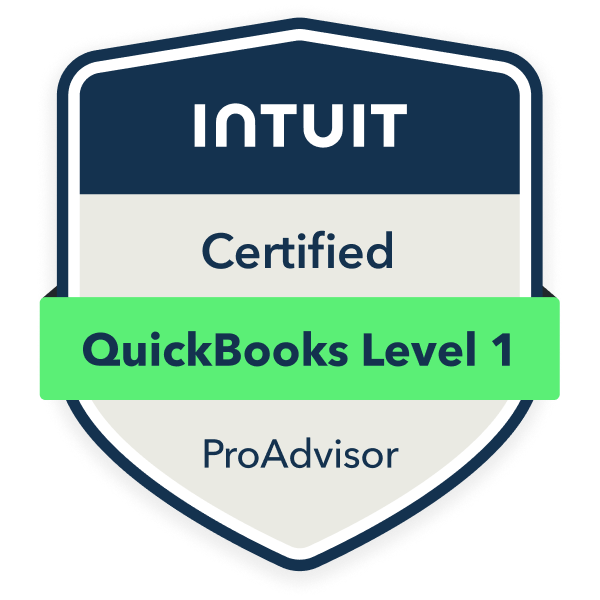
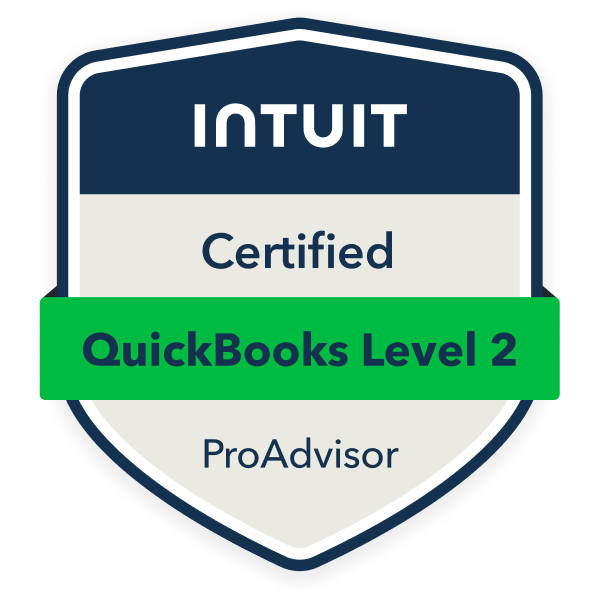
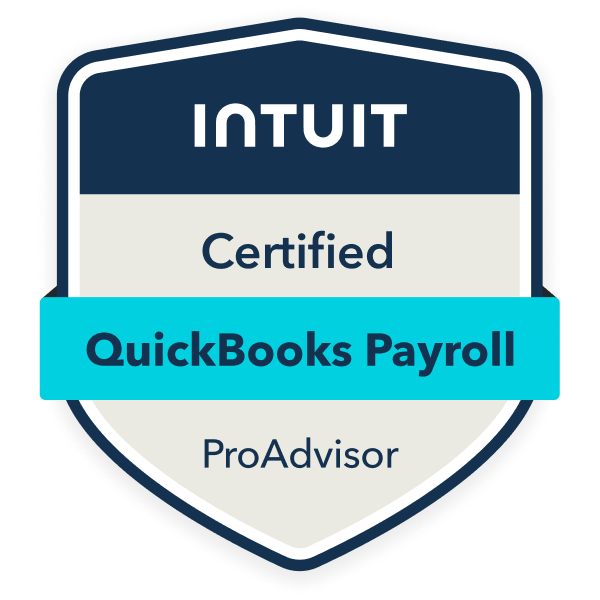
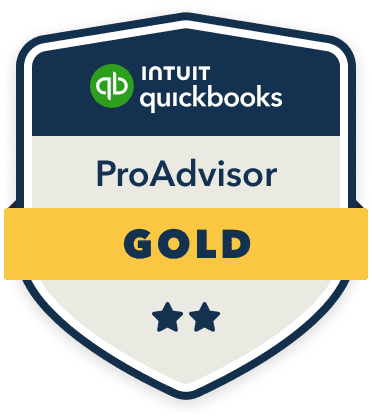
Why Clients Choose Tiffany G Bookkeeping:

"Working with Tiffany has been one of the best decisions for my business. She is professional, organized, and willing to go the extra mile! Highly recommend her!"
— Dawn, Owner at Bell House Doulas
Ready to get started? Book your free evaluation today!
Who is Tiffany G?

Tiffany Gatziolis
Owner and Bookkeeping Expert
At Tiffany G Bookkeeping, every ledger reflects Tiffany’s hands-on precision and a heartfelt commitment to bringing balance and clarity to your business finances. With over 17 years of experience—from payroll and human resources to cash-flow management, bookkeeping, and financial reporting—she ensures your books are accurate, compliant, and perfectly balanced.
Explore Our Bookkeeping Solutions
Clean Books. Clear Numbers. Confident Growth.
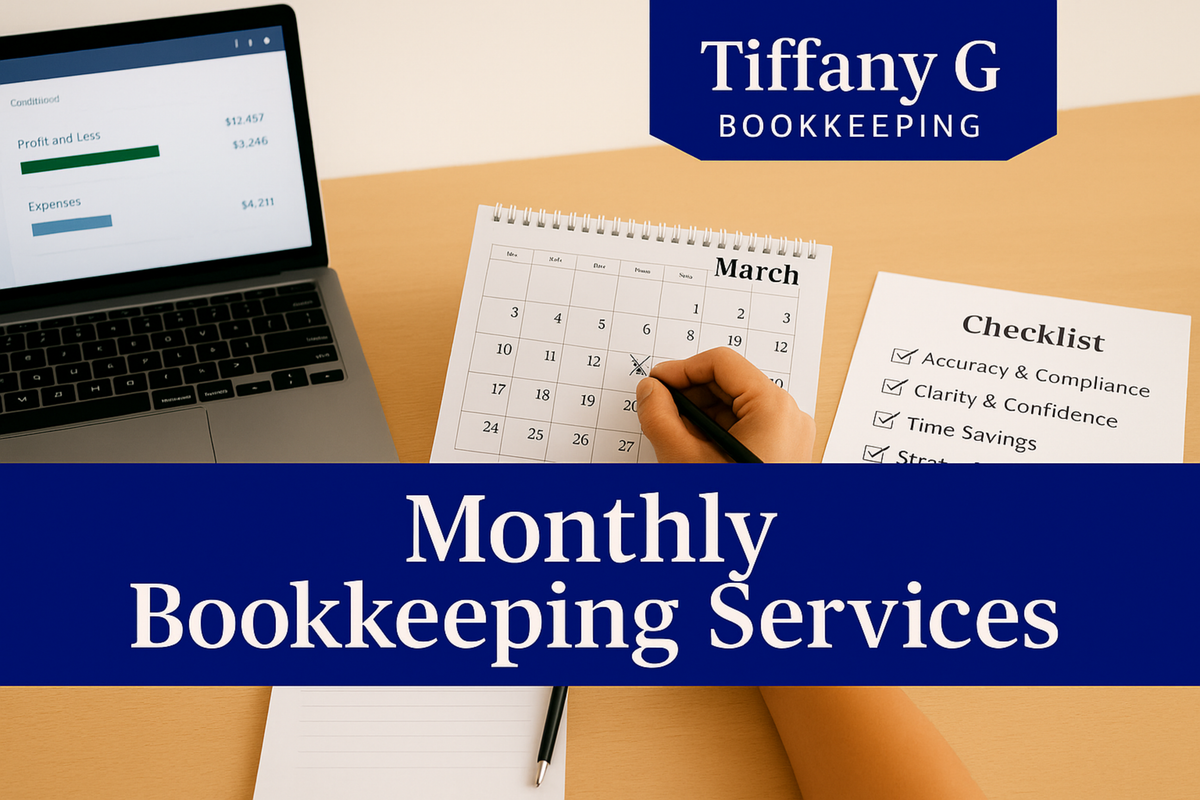
Monthly Bookkeeping Services
Streamline your finances, ensure compliance, and lay the foundation for growth with our monthly bookkeeping solutions.

QuickBooks Bookkeeping Checkup
and Strategy Session
Gain clarity, catch errors, and strengthen your financial foundation with a focused 10‑Point Bookkeeping Assessment.
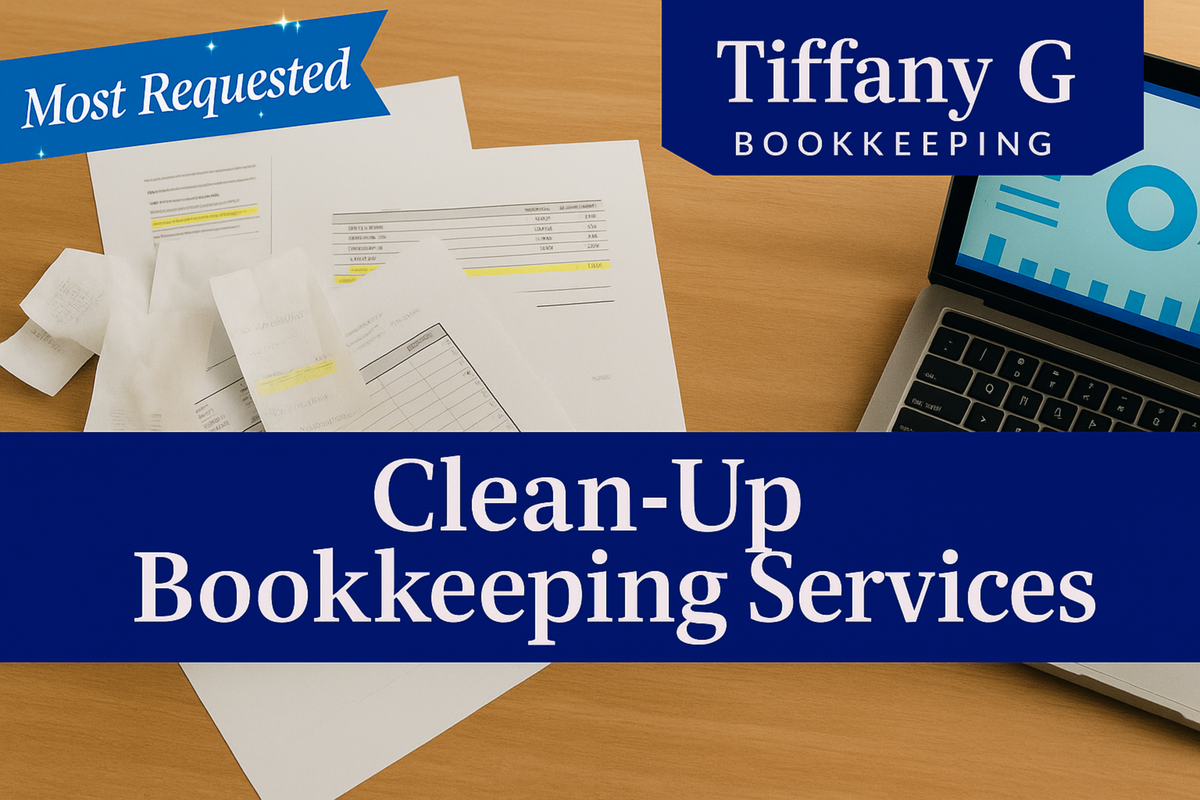
Clean-Up Bookkeeping Services
Eliminate errors, restore order to your books, and make confident decisions with our expert Clean-Up Bookkeeping solutions.
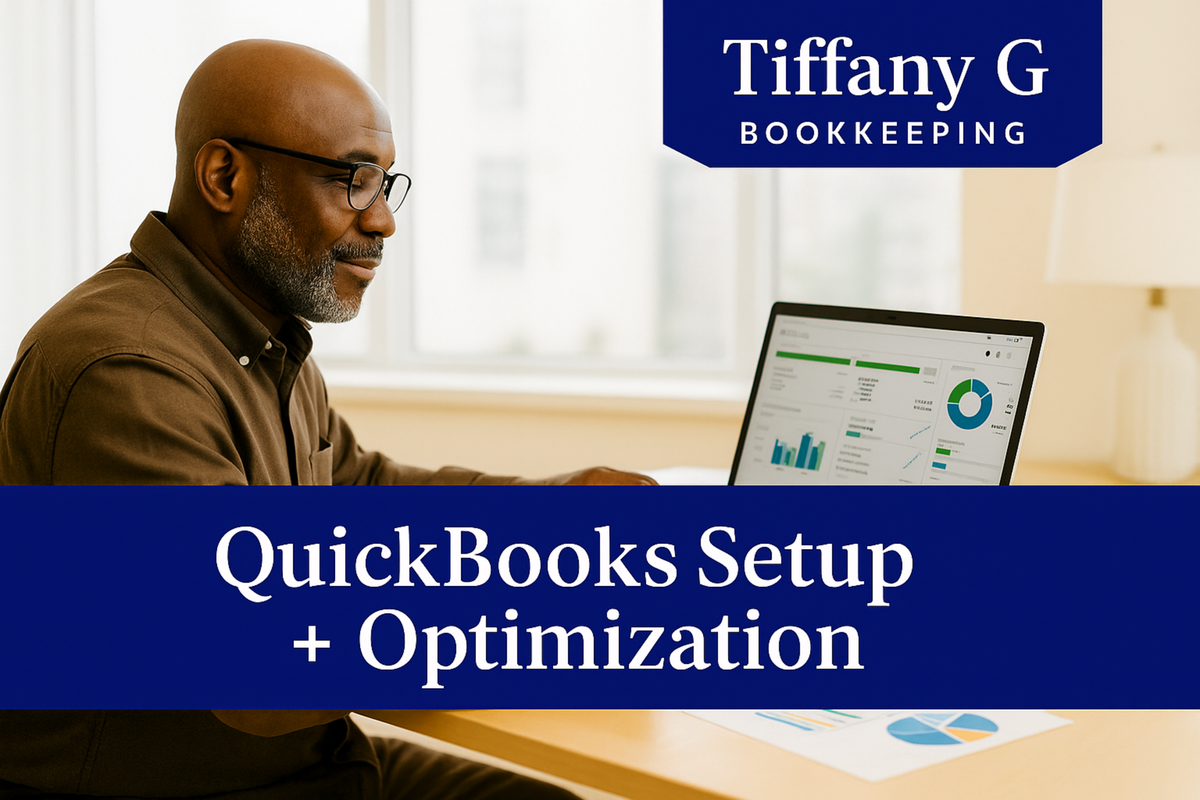
QuickBooks Setup and Optimization
Transform your financial operations with our comprehensive QuickBooks Online Setup and Optimization.
Fill out the form below, and let's get started!
Let's bring balance to your books — book your free evaluation now.

